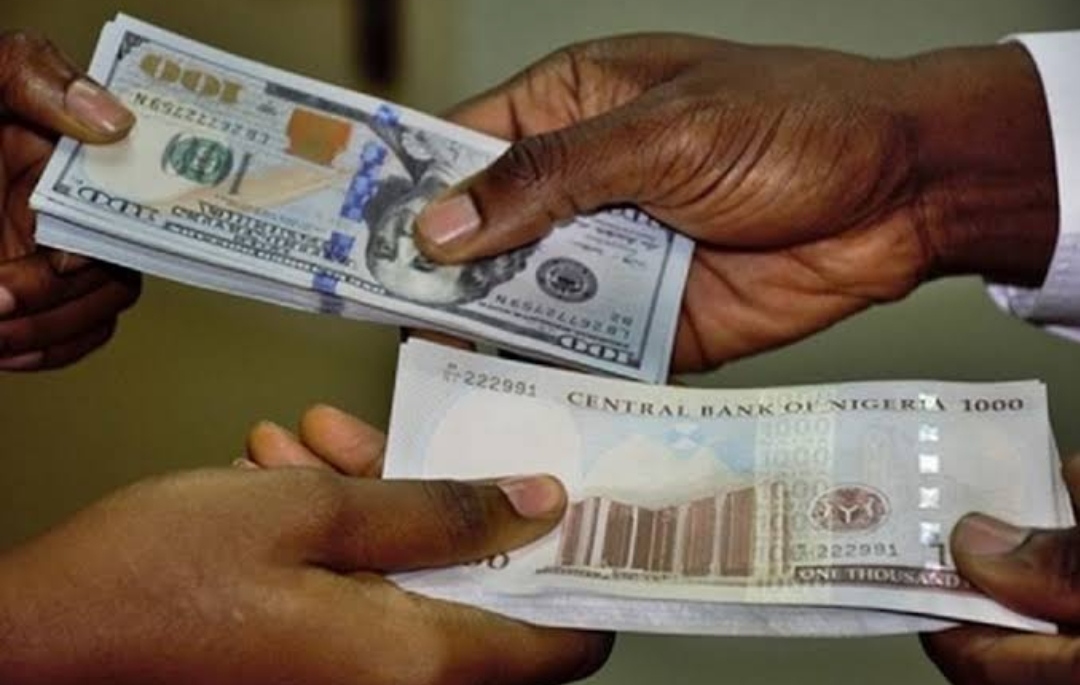- The Central Bank of Nigeria has directed Deposit Money Banks to eliminate the rate cap on the Nigerian naira, signaling a move towards floating the currency.
- Floating the naira would lead to increased exchange rate volatility, potentially impacting inflation and external debt obligations.
- However, it could also boost export competitiveness, attract foreign investment, and signal economic reforms, requiring careful policy coordination and social safety nets to mitigate the impact on citizens.
Nigeria, one of Africa’s largest economies, has a longstanding history of grappling with currency stability and foreign exchange challenges.
Over the year, the Nigerian government has employed various measures to manage its currency, the naira, including pegging it to a specific exchange rate. This naturally created two exchange rates, the official and the black market.
The disparity between the two provided an avenue for people with access to dollars to buy at the official rate and resell at the black market. Many millionaires and a few billionaires were created through this distorted system.
Floating the exchange rate is meant to solve this problem. The idea of floating the naira has however remained a subject of debate. Experts concede that it holds both potential advantages and risks.
What does it mean to float a country’s exchange rate? Floating a country’s currency, also known as a floating exchange rate, refers to a monetary system where the value of a nation’s currency is determined by market forces such as supply and demand.
In this system, the currency’s exchange rate fluctuates freely in response to various economic factors, including inflation, interest rates, trade balances, and capital flows.
Under a floating exchange rate regime, the government or central bank does not fix or peg the currency to a specific value against another currency or a basket of currencies. Instead, the exchange rate is determined by the interaction of buyers and sellers in the foreign exchange market. Supply and demand dynamics influence the currency’s value, and its exchange rate can appreciate or depreciate relative to other currencies.
On Wednesday June 14, 2023, Nairametrics reported that the Central Bank of Nigeria (CBN) has directed Deposit Money Banks (DMBs) to eliminate the rate cap on the Nigerian naira at the Investors’ and Exporters’ (I&E) Window of the foreign exchange market.
This move aims to facilitate a free-floating system for the national currency, enabling it to fluctuate freely against the United States dollar and other major global currencies. Analysts claim that it follows closely on the heels of President Bola Tinubu’s commitment to unify Nigeria’s various exchange rates.
Experts have quickly lined up on opposite sides of the aisle. Some argue that it would allow the currency to adjust to changing economic conditions, which can help promote competitiveness, adjust trade imbalances, attract foreign investment, and respond to shifts in global markets. Others swear that the exchange rate will become more volatile and subject to fluctuations, which can have both positive and negative implications for the economy.
As of Wednesday evening, banks were offering Naira at N755 to the dollar while in the streets it hovered between N750 and N754.
Let’s consider the implications of Nigeria floating its currency and the potential consequences for the economy.
Firstly, experts agree that floating the naira would likely lead to increased exchange rate volatility. In a floating exchange rate system, the value of the currency is determined by market forces such as supply and demand.
This means that the naira’s value would fluctuate in response to economic factors, including inflation, interest rates, and foreign investment. While this volatility can be unsettling in the short term, it can also help promote economic adjustments and improve competitiveness in the long run.
Floating the naira can also boost export competitiveness. When the naira is allowed to float freely, its value may depreciate, making Nigerian goods and services relatively cheaper for international buyers.
This can stimulate export-oriented industries, increase foreign exchange earnings, and potentially reduce the country’s reliance on oil exports. It would encourage diversification of the economy and help build a more sustainable and resilient economic structure.
In addition, floating the naira carries the risk of inflationary pressures. If the value of the naira depreciates significantly, it can lead to higher prices for imported goods and raw materials, which could translate into increased costs for businesses and consumers.
The Central Bank of Nigeria would need to implement effective monetary policies, such as interest rate adjustments and tight fiscal measures, to manage inflation and maintain price stability. So, all eyes are naturally on the Acting CBN Governor to get a sense of his leanings.
Moreover, floating the currency could impact Nigeria’s external debt and financial stability. If the naira depreciates, the country’s foreign debt obligations in other currencies, such as the US dollar, would increase when converted to naira.
This can potentially strain the government’s ability to service its debt. Nigeria’s total public debt stock as of March 2023, was N46. 25 trillion, excluding the estimated N27. 55 trillion ‘Ways and Means’ loans from the Central Bank.
Besides, increased exchange rate volatility may lead to capital flight and reduced investor confidence, which could pose risks to financial stability.
Furthermore, floating the naira can be seen as a sign of economic reforms and attract foreign investment. A flexible exchange rate system signals a willingness to embrace market-driven policies, which can instil confidence in international investors.
By allowing the naira to find its value, the Nigerian government may create an environment conducive to foreign direct investment (FDI), which can spur economic growth, technological advancements, and job creation.
One thing is clear, floating the currency would have socioeconomic implications for Nigerians. While it can enhance export competitiveness and potentially attract investment, it may also lead to short-term economic disruptions. It would impact the purchasing power of citizens, affecting their ability to afford essential goods and services. Mitigating these effects would require robust social safety nets, targeted interventions, and policies to protect vulnerable populations during the transition.
Yes, the government must urgently instigate steps to cushion the impact of currency floating on every Nigerian. government can implement various measures and policies. Here are some potential steps that can be taken:
Social Safety Nets and Welfare Programs: Strengthen existing social safety net programs or introduce new ones to support vulnerable populations, ensuring their basic needs are met during economic transitions.
Price Control Mechanisms: Regulate prices on essential goods and services to prevent excessive price hikes resulting from exchange rate fluctuations.
Investment in Infrastructure: Improve infrastructure to stimulate economic activity, create jobs, and improve living conditions.
Skill Development and Job Creation: Prioritize skill development programs, vocational training, and entrepreneurship support, and create an enabling environment for small and medium-sized enterprises (SMEs).
Support for Agriculture: Provide targeted support to the agricultural sector to enhance productivity, reduce reliance on imports, and stabilize food prices.
Investor Confidence and Economic Reforms: Implement structural reforms that enhance transparency, reduce bureaucracy, and improve the ease of doing business to attract domestic and foreign investment.
Financial Inclusion and Access to Credit: Facilitate access to financial services and credit, promoting financial inclusion and empowering individuals and businesses to navigate economic uncertainties.
Education and Healthcare: Allocate resources to improve the quality and accessibility of education and healthcare services.
Communication and Public Engagement: Effectively communicate policies, strategies, and the reasons behind floating the currency, engaging with the public, providing information, and encouraging dialogue to help manage expectations, address concerns, and build trust among citizens.
Evidently, cushioning the impact of currency floating on every Nigerian requires a comprehensive approach. By implementing these measures, the government can mitigate the adverse effects and create an environment of stability and resilience for its citizens.
Floating the naira presents a complex decision for the Nigerian government. While it holds the potential to enhance export competitiveness, attract investment, and signal economic reforms, it also carries risks such as increased exchange rate volatility and potential inflationary pressures.
Implementing a flexible exchange rate system would necessitate careful policy coordination, effective monetary management, and structural reforms to ensure long-term stability and positive socioeconomic outcomes.
Fellow Nigerians, let’s hold on to our hats, the next couple of days promises to be a whirlwind ride.
Written by Elvis Eromosele, a Corporate Communication professional and public affairs analyst based in Lagos.



















For this to work out, the black market must be outlawed. In developed countries, only BDC and Bank trade in foreign exchange. Of the banks trad at 750 for example and the dollars are not available, then the black market will increase their own and we are back to square one
Now that the currency is floating do I still need form A for school fees payment? Because the rain is almost same as the black market rate.